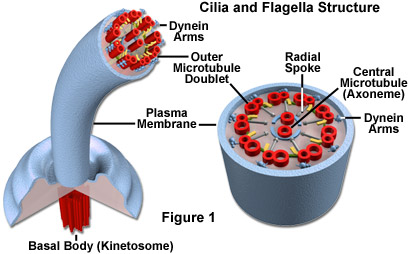I think that it's a legitimate argument that presents a challenge for anyone who wants to argue an evolutionary origin for biological systems.
My point in bringing it up was that in reference to the OP of this thread (whose subject line is "What is the Case Against Evolution"), I'm personally inclined to consider it one of "ID's" best arguments. That doesn't mean that I'm endorsing it, let alone that I'm persuaded by it. It's just one of their best arguments in my opinion.
I suspect that's probably true, sometimes at least.
Or at least argued by one set of attorneys at one particular court trial. The courtroom rhetoric may or may not have convinced a jury composed of laymen, but I prefer not to look to trials and court decisions for definitive answers to scientific and philosophical questions.
The way that courts approach science isn't necessarily how scientists themselves approach it. I recommend
Evidence Matters: Science, Proof and Truth in the Law by Susan Haack, 2014 Cambridge University Press, as an excellent discussion of the epistemology and philosophy of science implicit in US federal court procedure and precedent, including rules of evidence, exclusionary rules, expert testimony, the Supreme Court's perhaps excessive reliance on Popper in
Daubert, various questions regarding causation (such as combining causes, causation vs correlation), science vs pseudoscience, statistics and probability in the court room, proponderance of the evidence, and much more.
https://www.amazon.com/Evidence-Matters-Science-Proof-Context/dp/1107698340
I agree. It's a conundrum in the sense that it presents a problem that evolutionary biologists will have to address in every case in which they encounter a complex system whose function is dependent on the interaction of a large collection of parts. I don't think that it's a persuasive argument for "ID", but I also think that it's a legitimate scientific issue that can't just be dismissed with snarky sarcasm and with the wave of an atheist's hand.
Yes.
No the argument was given in expert testimony by Ken Miller.
To quote from the 2005 Kitzmiller judgement, " First, with regard to the bacterial flagellum, Dr. Miller pointed to peer- reviewed studies that identified a possible precursor to the bacterial flagellum, a subsystem that was fully functional, namely the Type-III Secretory System. (2:8- 20 (Miller); P-854.23-854.32)."
The present day Wiki article on the subject has this to say:
" At least 10 protein components of the bacterial flagellum share homologous proteins with the
type three secretion system (TTSS),
[32] hence one likely evolved from the other. Because the TTSS has a similar number of components as a flagellar apparatus (about 25 proteins), which one evolved first is difficult to determine. However, the flagellar system appears to involve more proteins overall, including various regulators and chaperones, hence it has been argued that flagella evolved from a TTSS. However, it has also been suggested
[33] that the flagellum may have evolved first or the two structures evolved in parallel. Early single-cell organisms' need for
motility(mobility) support that the more mobile flagella would be selected by evolution first,
[33] but the TTSS evolving from the flagellum can be seen as 'reductive evolution', and receives no topological support from the
phylogenetic trees.
[34] The hypothesis that the two structures evolved separately from a common ancestor accounts for the protein similarities between the two structures, as well as their functional diversity.
[35]
Main articles:
Intelligent design and
Irreducible complexity
Some authors have argued that flagella cannot have evolved, assuming that they can only function properly when all proteins are in place In other words, the flagellar apparatus is "
irreducibly complex".
[36] However, many proteins can be deleted or mutated and the flagellum still works, though sometimes at reduced efficiency.
[37] In addition, the composition of flagella is surprisingly diverse across bacteria, with many proteins only found in some species, but not others.
[38] Hence, the flagellar apparatus is clearly very flexible in evolutionary terms and perfectly able to lose or gain protein components. For instance, a number of mutations have been found that
increase the motility of
E. coli.
[39] Additional evidence for the evolution of bacterial flagella includes the existence of vestigial flagella, intermediate forms of flagella and patterns of similarities among flagellar protein sequences, including the observation that almost all of the core flagellar proteins have known homologies with non-flagellar proteins.
[32] Furthermore, several processes have been identified as playing important roles in flagellar evolution, including self-assembly of simple repeating subunits, gene duplication with subsequent divergence, recruitment of elements from other systems (‘molecular bricolage’) and recombination.
[40]"
As to your other comments, yes there is a lot of work to do, no doubt of it. Where the "snarky" comments come in, in my view understandably, is that the argument advanced by "irreducible complexity" is actually
not that it is can be shown to be "irreducible", but merely that it has not, to date, been reduced. This is equivalent to pointing out that "this is a difficult problem", rather than "we have proved this problem has no natural solution".



